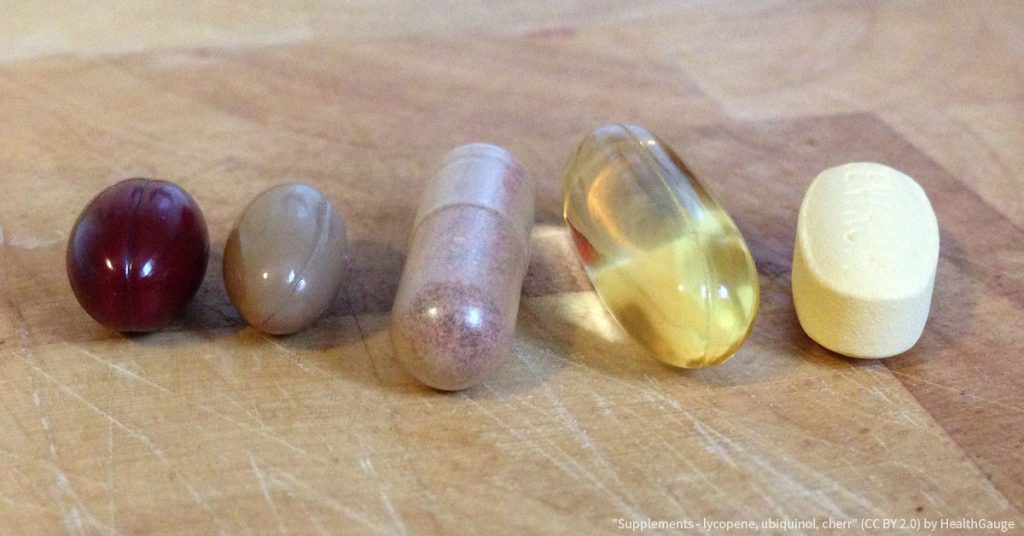In the picture: “Supplements – lycopene, ubiquinol, cherr” (CC BY 2.0) by HealthGauge
We try to understand when it is useful to supplement nutrients or when instead it is simply adequate to regulate your diet.
Supplements: precious allies of athletic performance or supplements you could easily do without? In this article, we will try to shed light on a phenomenon that moves a turnover of over 2 billion euro, especially concerning sports supplements made with amino acids, vitamins and minerals.
They can be purchased freely, without prescription, in supermarkets, health food stores, specialized shops or on the internet.
But are they necessary?
Competitive or amateur sports?
In the first case, sports doctors or nutritionists may prescribe vitamins as supplements for adequate nutrition in order to achieve an optimal nutritional state.
Since athletic performance in these cases requires a high degree of muscular activity and significant energy consumption (even twice as much compared to days of rest), you may think to supplement the loss of minerals, vitamins and proteins.
If you are an amateur swimmer and enjoy the activity for a duration of about 1 to 2 hours, from 2 to 4 times a week, even unprofessionally but with great physical exertion, you may be able to do without supplements and rely solely on a balanced diet.
What is the purpose of swimming supplements?
Raise your hand if y0u’ve ever heard that protein is usually taken in quantities in order to make your muscles grow. Well, proteins can’t increase the volume and strength of your muscles, because their job is to repair damaged muscle structures. Many athletes use amino acid supplements or follow high protein diets, but be careful because excessive amounts of protein can lead to imbalances and malfunctions particularly in reference to your kidneys and bones.
In general, carbohydrates should not be left out of a swimmer’s diet, whether at mealtimes or during training sessions, giving priority to complexes from pasta and brown rice. A balanced diet should contain on average 55-60% carbohydrates, 20-25% vegetable fat and 20% protein.
Look at those muscles!
In any case, disciplines such as the 100m, 200m or 400m races, with a short duration and greater intensity, need adequate protein. Even fats play a key role when addressing energy, and, in particular, unsaturated fatty acids (linoleic acid, Omega 3) and short-chain fatty acids, contained in oils and fruits.
What does a swimmer need?
If you don’t want to suffer excessive fatigue, it is essential to effectively utilize energy reserves, matching a workout routine to a proper eating plan. During a high workload, for example, a supplement containing carbohydrates is better, while in the course of long and intense training sessions, you should take amino acids that will stimulate the synthesis of proteins, since the muscle undergoes catabolism and anabolism (in plain English, first it burns and then it rebuilds).
Swimmer’s muscles are well defined, soft, elastic and tapered. It is for this reason that the maximum oxygen consumption is, on average, lower than that of a runner or a cyclist.
Food often weighs down the digestive system and contains waste that can disrupt training and competition. Since food alone isn’t always able to offset such necessity, one can resort to natural food supplements, highly concentrated, and able to quickly rebalance the functions and nutritional losses that the body undergoes during exertion.
However, they must be chosen intelligently and based on actual physical needs. In this way, when combined with willpower, a spirit of sacrifice and hard training, they can be a very good ally for the improvement of athletic performance.
